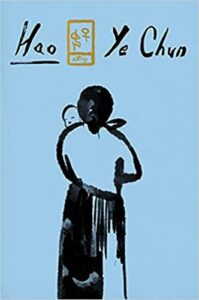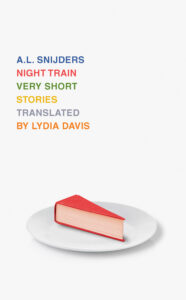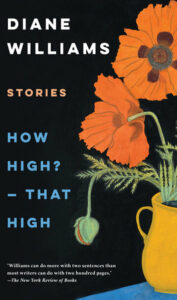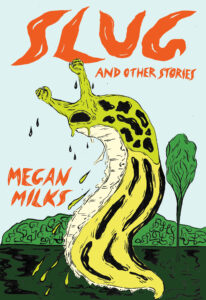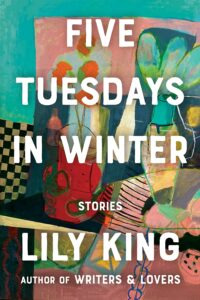
7 new story collections to fall into this season.
I’m a sucker for a good short story collection. They are the commuter’s dream, every section break a gentle reminder to look up and make sure they didn’t skip your train stop. They are a salve for the short attention span so many of us have adopted these days. And this fall, we are in luck. There is much to look forward to.
*
Venita Blackburn, How To Wrestle A Girl
(MCD x FSG)
If you loved Black Jesus and Other Superheroes (and you should), you’re in luck! Venita Blackburn’s sophomore story collection is another winner. In her first wondrous collection, her characters lived with less-than-super superhuman abilities, and in this one, they are grapple with the things that you shoulder, too: grief, questions of sexuality, the burden of the body. Most of these stories follow a teenage girl in the hollow of her father’s death. But there are also forays into her relationships with her mother and sister, the unwanted attention of men, a confusing attraction to a best friend, church, and softball. Every story brings you to the cusp of something. The sometimes spare and fragmented nature of the narrative is so perfectly fitting for a book focused on blossoming queerness, growing bodies, the aftermath of a life—in other words, things that are about to emerge. There is a brilliance to framing this collection as a how-to guide, as it offers no easy answers. No, instead, Venita Blackburn insists on making us stay in this chaotic, beautiful liminal space a while longer.
Ye Chun, Hao
(Catapult)
Ye Chun’s gorgeous collection turns our attention to Chinese women. They are wives and mothers. They are immigrants and graduate students. They are bridges between continents—from China to San Francisco’s Chinatown—and across generations. One woman is hidden away in a small San Francisco apartment during the anti-Chinese riot of 1877. Another watches her books burn and is forced to write “May Chairman Mao live ten thousand years” again and again as punishment. Although Hao covers a large swath of history, dropping us into pivotal moments of turmoil and transformation, Ye Chun masterfully zooms in and makes families the focal point. The beating heart of this collection is often in the intimacies between a mother and her child. To me, the moments that leap off the page invite us into their invented games, their shared rituals. In “Stars,” a doctoral student has a stroke that severely limits her speech; she returns to the building blocks of English, has to re-learn at the same level as her young daughter. They read A House Is a House for Me and play that pattern out: “What is a window a house for?” the mother asks. “A window is a house for outside,” her daughter decides. And so on and so forth until we get the lines, “Future is a house for everyone. / Everyone is a house for bones.” Reading Ye Chun’s collection is like watching the most incredible acrobatic routine. Who knew people could do that with their bodies? Who knew someone could do that with words? Here’s another example. In the title story, “Hao,” the word game between mother and daughter essentially traces the origin of Chinese characters. For example, the symbol for “good” is written like a woman holding her child. The women in these pages are faced with the most impossible circumstances, and they manage to make a sanctuary of words. More than anything, Hao is a love letter to language.
A.L. Snijders, tr. Lydia Davis, Night Train
(New Directions, October 5)
Lydia Davis, queen of pith and brevity, now uses her powers to introduce us to A.L. Snijders. The stories in this collection, translated from the original Dutch, are small delights. In the spirit of this book, I will keep this blurb to a minimum. These “very short stories” are quite like eating a narrow sliver of cake. You are satisfied; you crave more.
Diane Williams, How High? — That High
(Soho Press, October 12)
Perhaps you have encountered Diane Williams’ stories before. In that case, do I even need to say anything else? Her Collected Stories was released to rave reviews just a few years ago, and there’s clearly no stopping her! Diane Williams’ writing is like a fine wine; you’re enchanted by the first sip, and it only gets better with age. Honestly, with this writer, sometimes all you get is the first sip—then she slaps the glass out of your hand. (I mean this in the best possible way.) The stories here trod on ground you yourself have walked: waiting rooms, dance floors. They cover your everyday mundanities, but the magic is in her ability to turn a phrase, to surprise on the sentence-level.
Farah Ali, People Want To Live
(McSweeney’s, October 26)
Farah Ali brings us to Pakistan with her debut collection. People Want To Live is an intricate patchwork of lives. A mother is confronted with her dead son’s secrets. A son confronts memory while caring for his aging parents. An orphan yearns for selfhood, for freedom. What’s particularly remarkable is the generosity with which Farah Ali places these characters on the page. (Even the thieves!) They all pulse with life, even when faced with the darkest of circumstances. Farah Ali writes from the crater of our existence, which is to say she finds characters on the brink and brings them to us in precise prose that glimmers with hope for humanity.
Megan Milks, Slug and Other Stories
(Feminist Press, November 9)
Slug and Other Stories is like no other collection you’ve ever read before. Immediately, you are thrust into a surreal world, and the shock of the situations you encounter will propel you through the pages. In the title story, you will meet Patty, who has an S-M fetish and who is visited by a giant slug who crawls through her window (but, like, in a sexual way) and transforms her. Yes, that happens! But you are so willing to suspend your disbelief because the book radiates a great command of the narrative form. Check the matter-of-fact tone here: “One day, missing the thrill of rottingdonquix’s emails, Patty wrote him with the suggestion that they meet in person. He agreed. He was fat, and ugly. She left with a sneer on her face. That was the end of love.” That was the end of love! (You could say that this is a collection very much obsessed with new ways to convey endings and beginnings.) There’s another story now seared into my memory called “The Strands.” Here, let me just give you the opening line: “Tegan’s pillow was growing hair.” Megan Milks is a master at eliciting strong reactions; their work lives in the viscera. What emerges from this can’t-look-away start is also a funny and devastating queer love story that dabbles in “quincest” (a term used to describe Tegan and Sara fan fiction!). But let me assure you that there is nothing gimmicky about the conceit of these stories. They are carefully considered, successful instances of experimental fiction. My personal favorite story, “Kill Marguerite,” is about the cruelties inflicted by middle school mean girls—but it’s structured like a video game that you just can’t win. (Spoiler alert.) The cold, confidence of the repeated line “Caty has died” haunts me and makes me laugh in equal measure. Megan Milks is ruthless.
Lily King, Five Tuesdays In Winter
(Grove Press, November 9)
There’s a line about halfway through Lily King’s Five Tuesdays in Winter that goes: “Through it all Wes kept talking, as if a certain combination of words spoken in the right tone could make it all better for everyone.” Well, Lily King has that certain combination of words, spoken in the right tone, and we are all lucky for it. If you enjoyed her novels, just wait and see what she can do with the short story! How quickly she can charm you with the characters nestled into these pages! The ten stories here really showcase her range, too. One moment you’re in a bookstore watching a man be hopelessly in love with his employee, and the next moment, you’re on an anxiety-fueled vacation with a mother (recently widowed) and her daughter (recently fatherless). In my personal favorite story, there’s a teenage boy left in the care of two college students who are housesitting for his parents, and for one glorious summer, they make a sort of beautiful family. Lily King writes with such sweet tenderness. She is also a master at doling out just the right details. With her most recent novel, Writers & Lovers, I was struck by how she gets the musicality of restaurant work just right. Similarly, in this book, she builds the world with such a grounding specificity, and the small asides she shares about her characters (say, someone yearning for mushroom soup that they had once but that the restaurant never seems to make again) feel like their personalities distilled into one crystalline thing. The way these narrators take in and recount the world is always with a carefully observant and playful mind. In fact, every character finds themselves a storyteller here, whether it’s a mother being pestered for entertainment on a long car ride or a young writer sitting down at her desk. Yes, everyone will find that this collection has left small hooks in their heart, but writers in particular will feel that Lily King has penned something especially for them.
Katie Yee
Katie Yee is a Brooklyn-based writer.










